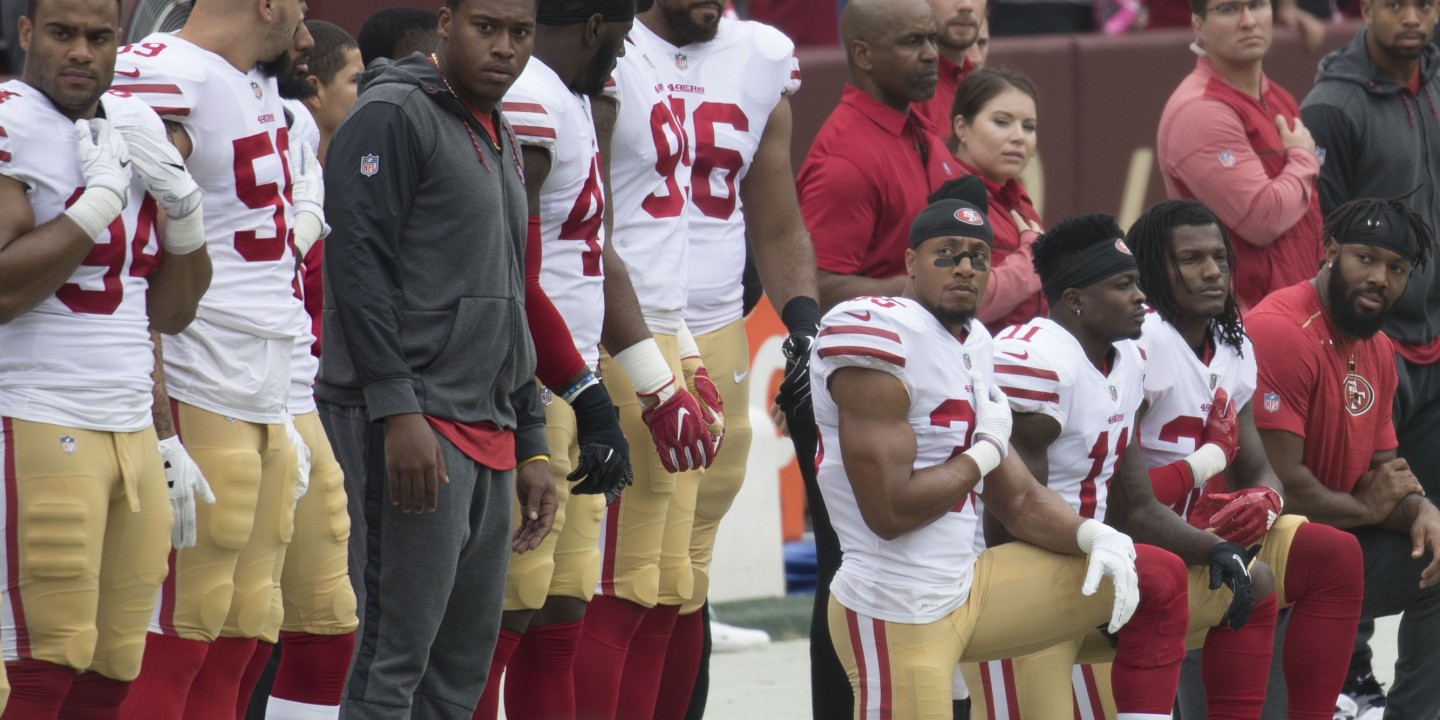NFL players are human beings with rights
The league—and many fans—treat them as cogs without agency.
American football, with its large rosters, precise formations, and martial overtones, is the epitome of a team sport. Whatever their individual talents, each player functions in a narrowly defined role—a cog in the machinery of a team’s overall effort.
Yet players are also people—and one of the most vivid images of players’ humanity comes when they take a knee. During the game, this is one of several ways that players “down” the ball, avoiding being tackled by ending the play. Between plays and on the sidelines, players take a knee for various reasons. Lexicographer Ben Zimmer has traced the phrase back to a college team’s 1960 tribute to a deceased coach. It gained traction in reference to players stopping to rest. Later the posture came to signify solidarity—an expression of prayer or encouragement for the anxious or concern for the injured. In each case, taking a knee highlights the vulnerable humanity football teams are made of.
Read our latest issue or browse back issues.
That’s what makes the NFL player protests against police brutality and racism—begun in 2016 by Colin Kaepernick and Eric Reid—so powerful. The sight of black players taking a knee during the playing of the national anthem evokes solidarity, empathy, and remembrance of the dead. It’s a posture that represents a player stepping out of his role in the game and embracing his more fundamental identity as a person.
Many NFL fans objected to this demonstration. They emphasized instead players’ duty to toe the line. Like soldiers, they should keep their opinions to themselves; they should accept without complaint the debilitating injuries they suffer in action (no one forced them to enlist); and they should never, ever break formation.
Yet break it they did, taking a knee among those standing at attention. They asked the rest of us to see them—and, by extension, black Americans who are not televised celebrities—as humans with dignity and agency.
Last month the NFL decided to outlaw such protests. It declared that all personnel on the field must stand during the anthem—and teams and players who don’t can be fined. Players may choose to stay in the locker room instead—which means an alternative to standing will be available but also invisible. The free speech zone will be far from fans and cameras, effectively silenced.
But the rest of us need to see these players’ witness. Like the worshiper who genuflects in the presence of Christ’s body, they take the knee to acknowledge their dependence on something that’s greater than them but also includes them. As members of the body politic, they demand our attention: the body is hurting, and our life together requires its healing.
The league may fear the many fans who reject this protest and threaten to spend their money elsewhere. But there are also fans who prioritize the players’ dignity and rights. Perhaps more of them will make their views known by staying away from stadiums and declining to tune in to the games.
A version of this article appears in the print edition under the title “NFL players and other vulnerable bodies.”






